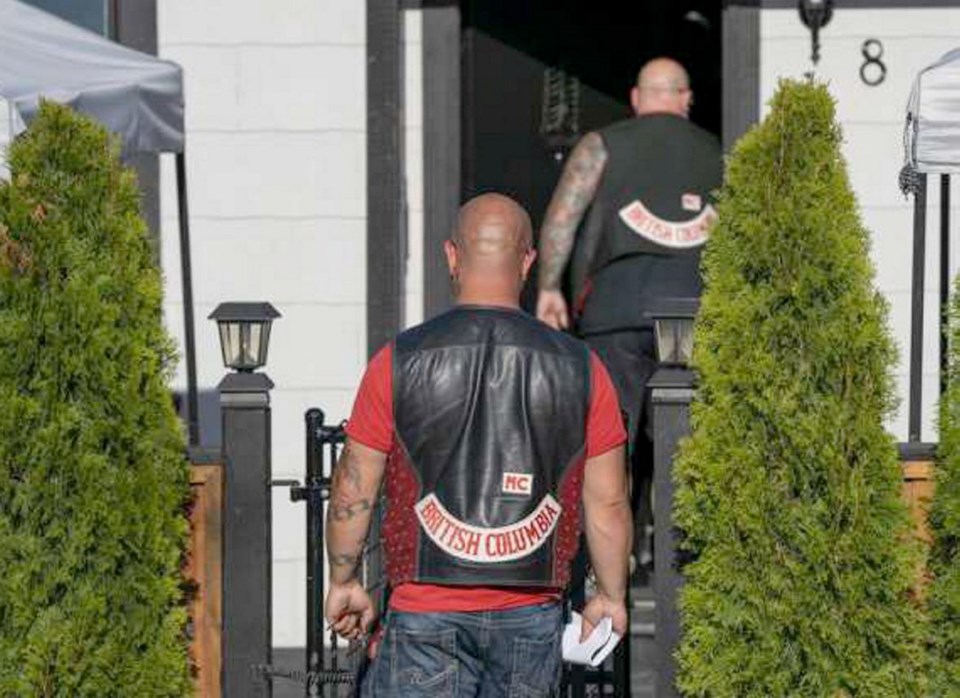VANCOUVER — A lawyer for the Hells Angels suggested Tuesday that a civil-forfeiture case against the notorious motorcycle club was motivated by a desire by the RCMP to get “bad guys,” and had nothing to do with concerns about the club’s Nanaimo property.
The comments were made by lawyer Joseph Arvay during the second day of his questioning of Phil Tawtel, the executive director of the provincial civil-forfeiture office. Arvay was asking Tawtel about a referral document in which the RCMP recommended in 2007 that the Hells Angels clubhouse in Nanaimo should be targeted for civil forfeiture.
A lawyer for the director objected to Arvay’s questioning based on the document and the witness was asked to leave the courtroom while the lawyers argued the matter.
Arvay told B.C. Supreme Court Justice Barry Davies that he was going to ask the court to draw the inference that from the police perspective at least, the RCMP referral was much more about simply going after the motorcycle club than any real concern about the property.
He accused the director of looking for “whatever hooks” are available in the applicable legislation to go after the property.
Arvay said that although the RCMP referred to a possible beating in the clubhouse and the discovery of some guns inside the premises, the major basis for the referral was that the clubhouse was a “booze can” and operating without a liquor licence.
“That was the hook,” he told the judge. “But the fundamental reason for recommending this civil forfeiture is: These are bad guys, you should go after them.”
Brent Olthuis, a lawyer for the director, objected to the questioning on the basis that it was calling for hearsay from a witness on the motivation of the RCMP as the referring agency.
“I say you can’t do that. You simply cannot do that,” Olthuis said.
Olthuis also objected to the questioning on the basis that it was not relevant to the issues in the case.
But the judge said that in “general terms” he agreed with Arvay and noted that in canvassing the constitutional issues being raised in the case, he needed a “full factual matrix” to make a final decision.
“The director has opined that the Hells Angels are a worldwide organization with criminal purposes and that the clubhouses act to facilitate that role,” said the judge.
“To deny the defendants the right to examine the basis upon which these proceedings were commenced, and the interaction between the RCMP and the director, would render the constitutional question something to be decided in a factual vacuum. That will not occur.”
The judge said that he agreed it might be difficult to determine the motivation of the RCMP, but added that what was relevant in the case was the actions taken by the director in response to the RCMP referral.
The long-running case saw the civil-forfeiture office launch its lawsuit seeking forfeiture of the Nanaimo clubhouse in 2007.
The director alleges the clubhouse is an “instrument of unlawful activity” and that it’s an asset that should be forfeited to the government.
In 2012, the office filed another lawsuit seeking the forfeiture of two more Hells Angels clubhouses — in Vancouver and Kelowna.
The trial is expected to continue Wednesday.



